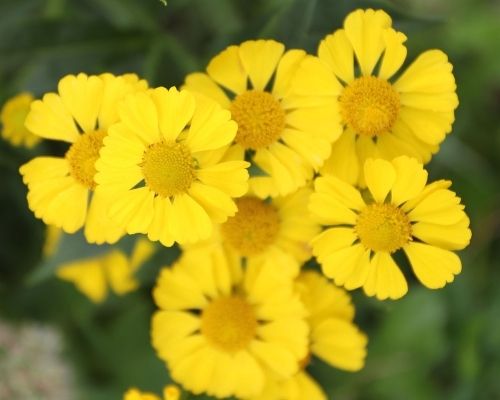Perennials That Bloom in August and September
Most perennial gardens are in their prime from late May through July—a glorious but short 8 weeks. By August, these plants have usually finished blooming and are looking pretty tired. To overcome this late season slump, make sure your flower garden includes perennials that don’t start blooming until late summer.
Read on to learn about ten reliable favorites that flower in August and September.
Helenium
These tough, North American natives have daisy-like blossoms with prominent cones, in colors ranging from yellow to deep red. The flowers appear in clusters across the top of the plant, which makes them extra showy. The upright, clumping plants typically stand 30-40” tall. Helenium is a magnet for bees, butterflies and other pollinators. Sometimes goes by the common name: sneezeweed. Look for varieties such as The Bishop and Moorheim Beauty.
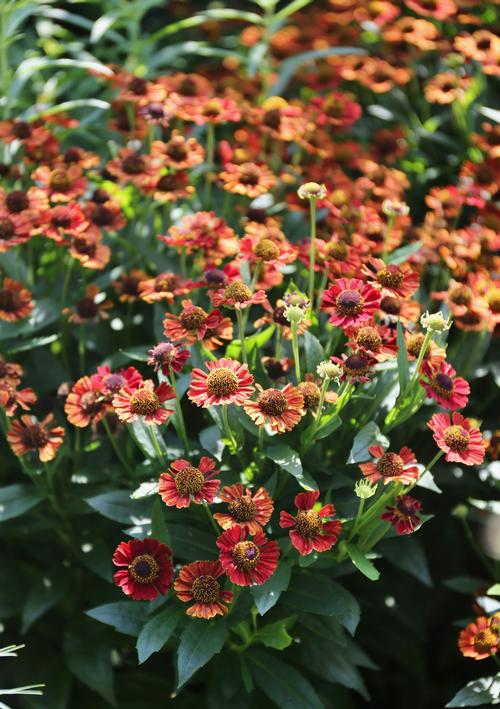
Echinacea
This is another native North American plant. It's more commonly known as coneflower. Though echinacea may start blooming earlier than August, if you deadhead the flowers and fertilize the plants in midsummer, they will usually continue blooming into September. As it gets later in the season, let the spent flowers remain. Finches and other songbirds love snacking on the seed cones. Grow the species or seek out named cultivars such as ‘Magnus’ and ‘White Swan’.
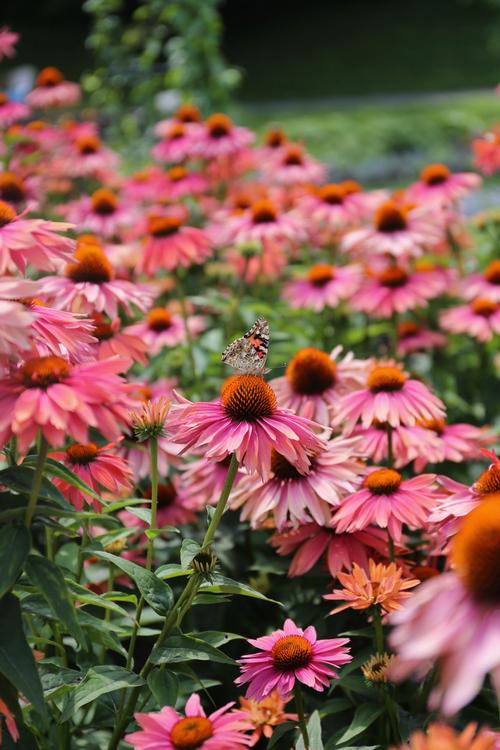
Clematis
Reblooming clematis are a relatively modern introduction. These plants will flower heavily in June and then rebloom again during late summer and fall. You might also consider planting Clematis terniflora or sweet autumn clematis (shown here). This is a vigorous vine that requires a relatively large space. It has leathery, dark green leaves and 4-petalled blossoms that create a cloud of flowers in late summer.
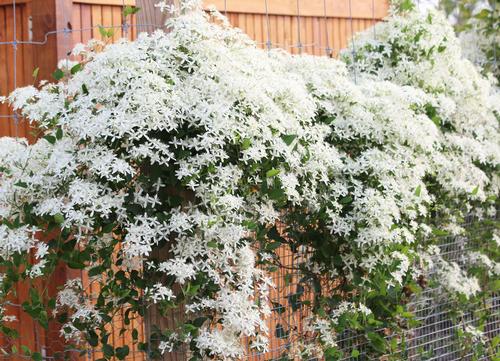
Japanese Anemone
These graceful, buttercup-like flowers have wiry stems and buds that resemble clusters of pearls. The plants grow about 3 feet tall and can be planted in full sun or partial shade. Choose single or double flowers in pink or white – all are lovely. When grow in rich, fertile soil, the plants spread by runners, so you may need to keep an eye on them.
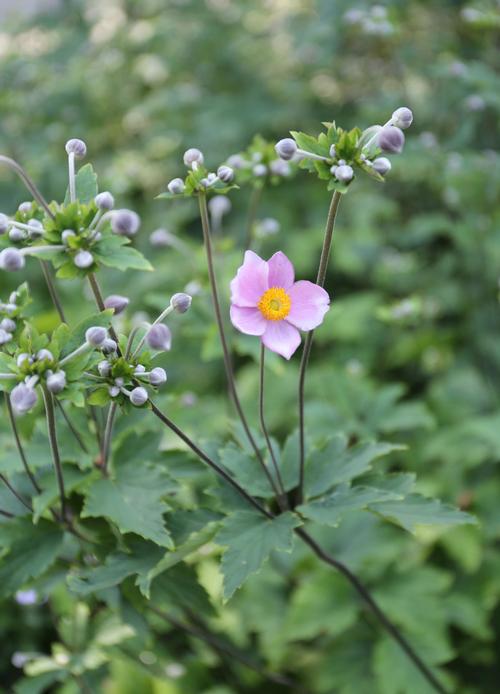
Asters
Pollinators count on these native perennials for late summer nectar and pollen. Gardeners can choose from many sizes and colors of asters. Some grow no more than a foot tall, while others can reach 4 feet. The flowers have yellow or orange centers and a fringe of colorful petals that may be white, lavender, purple, blue, pale pink or magenta. Plant in well-drained soil and full sun.
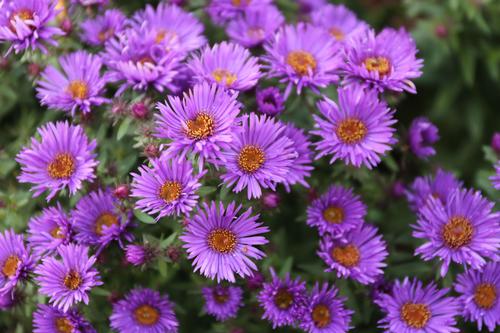
Mums
There are three ways to use chrysanthemums in your perennial garden. Seek out time-tested varieties that will return every year, such as ‘Sheffield Pink’ and ‘White Bomb’. Plant young mum plants in spring so they will size up and bloom in late summer. You may also purchase potted mums at the end of the summer for adding bursts of late season color wherever it’s needed.
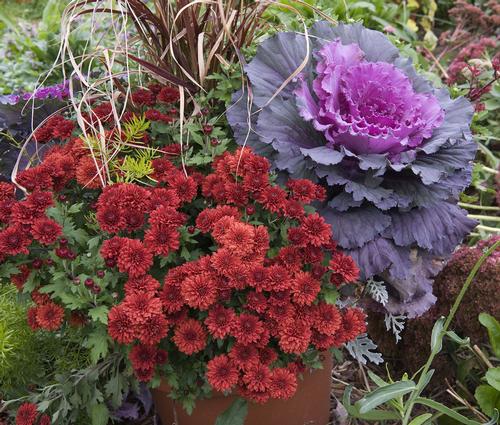
Russian Sage
This carefree perennial stays in the background until August, when it sends up airy, 3-foot flower plumes. The soft, grey-blue foliage is a perfect complement to the hazy, lavender-blue flowers. This plant is long-lived and drought-tolerant, plus deer and rabbit-resistant. Needs full sun and well-drained soil.
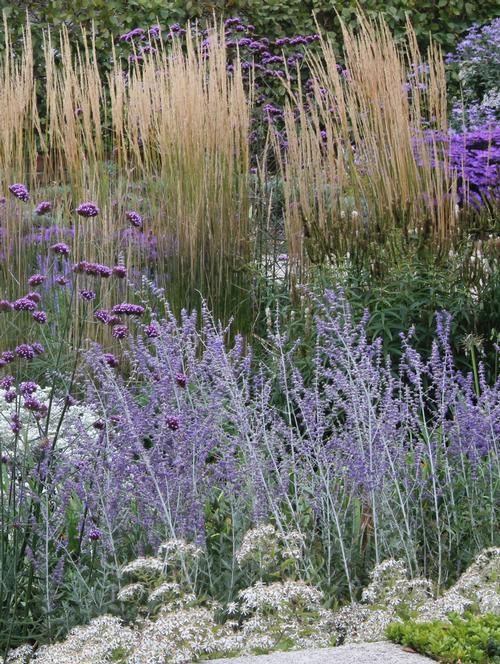
Sedum
Upright sedums are essential for adding late season texture and color. Most popular is the cultivar Autumn Joy, loved for its pale green foliage and broccoli-like flower heads that start out pink and age to deep brick red. Newer cultivars offer burgundy or variegated foliage, and flowers that can be brighter or darker in color. Plant in full sun.
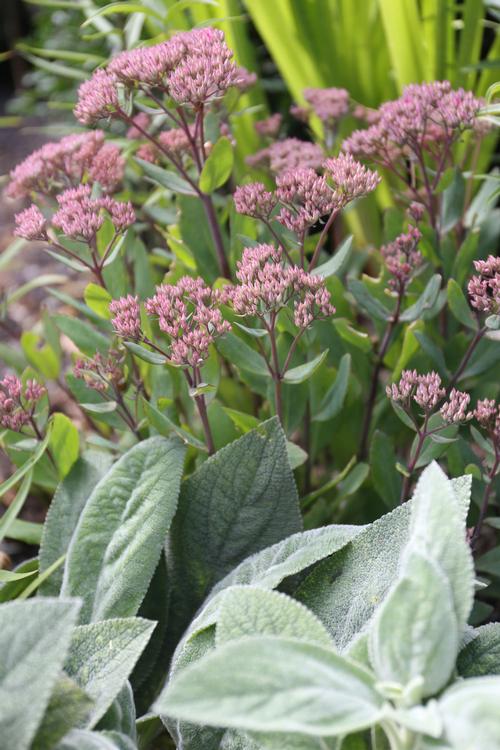
Rudbeckia
These North American native plants have golden-yellow flowers with chocolate brown centers. There are quite a few different species and cultivars. Flower sizes vary, as do heights, with some reaching up to 6 feet tall. Rudbeckia hirta, commonly known as Black-Eyed Susan, is the most popular rudbeckia. It's an easy and reliable plant and ideal for perennial gardens.
There’s no reason to let your flower garden go dark in late summer. Plant some of these late-season perennials and celebrate the changing of the seasons!


